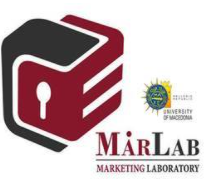The Greek economy relies heavily on tourism, with the Bank of Greece proposing to further strengthen tourism as a means for achieving high growth rates. Unfortunately, this is impossible under the present circumstances. While the country has entered the phase of gradual lifting of quarantine measures, Greece’s strategy concerning tourism has not yet been clarified. Greece, after the international positive exposure it received due to the successful management of the COVID-19 pandemic, could take advantage of its positive image and maintain some of the tourist inflows without risking an extensive spread of the virus in the country. Therefore, a key question that arises is what are the appropriate policies so that Greece does not lose all tourists from abroad while promoting domestic tourism and encouraging more Greeks to take vacation in the country?
Part III of the nationwide online survey conducted by the research team of the marketing laboratory, MARLAB, at the University of Macedonia, which consists of Ms. Rodoula Tsiotsou, Professor and Director of MARLAB, and the research associate-members, Ms. Nicoletta Siamaga, Assistant Professor of Aristoteles University, and Mr. Achilleas Mpoukis, Lecturer at the University of Sussex, attempts to answer this critical question. The data collection was carried out between 23/04 and 28/04. The sample consists of 1073 people.
MAIN POINTS OF THE RESEARCH RESULTS:
– Regarding Greece’s policy on incoming tourism, Greeks seem skeptical about the opening of the borders to all tourists (49.4% disagrees with the opening of the boarders) while they prefer a) to accept tourists from countries with low rates of confirmed COVID cases-19 (31.9%), b) to carry out strict inspections at the country’s airports and borders (93.7%) and c) to allow tourists entering into the country only with a special certificate for COVID-19 (74.2%).
– Regarding the internal management of issues related to tourism, the vast majority of Greeks (96.6%) believe that hotels should now follow strict hygiene rules, while 74.8% considers that the use of a mask on all public transports (airplanes, ships, trains, and buses) should be mandatory.
Regarding Greece’s policy on incoming tourism, it is interesting that only 14.5% of respondents agree to some extent that Greece should open its borders to all foreign tourists this summer. In contrast, the majority of respondents (49.4%) strongly or largely disagree with this perspective, while 36.2% said they were unsure.
However, respondents are more receptive to the arrival of tourists from countries with few confirmed COVID-19 cases, with 31.9% agreeing with this policy and 30.7% disagreeing to some extent, while 37.4% say they are unsure. The respondents of the survey agree overwhelmingly (93.7%), to impose strict controls at airports and on the country’s borders to control COVID-19. Respectively, it is interesting that the vast majority of respondents (74.2%) agree with the idea that foreign tourists should enter Greece only with a special certificate related to COVID-19.
Regarding the internal management of tourism issues, 96.6% of respondents believe that hotels in the country should follow stricter hygiene rules. By the same token, 74.8% of respondents agree to some extent with the measure of making mandatory the use of a mask on all public transports (airplanes, ships, buses, and trains). One-third of the respondents consider that due to the reduced tourism in the country, the quality of services will be better than last year (29.3%), while it is interesting that the majority of them (53.9%) are not sure.
Finally, the participants in the survey were asked whether they agree with the suspension of summer holidays’ days off for employees. 49% of respondents disagree with the idea that businesses need to suspend workers’ summer leave for the economy to reopen, with only 18.5% supporting this view.
SAMPLE PROFILE: 1073 people responded to the questionnaire, from which 31% were men and 69% women. In terms of age, 62% of the sample was between 20 and 40 years old, 34% was between 41 and 65 years old, and the remaining 4% was under 20 years old. 40% of the sample was married, 53% was single, 6% was divorced and 1% was widowed. In terms of income, 26.5% declared income less than 10,000 Euros, 33.6% between 10,001 and 20,000 Euros, 22% between 20,001 and 30,000 Euros, 10.4% between 30,001 and 40,000 Euros and the remaining 7.5% declared an income higher than 40,001 Euro. The sample was nationwide, coming from 47 different prefectures in the country.
The results are available in Greek here https://www.uom.gr/8101-pos-pisteyoyn-oi-ellhnes-prepei-na-antimetopistei-o-eiserxomenos-toyrismos-logo-covid-19
INDICATIVE PUBLICATIONS IN PRINT MEDIA
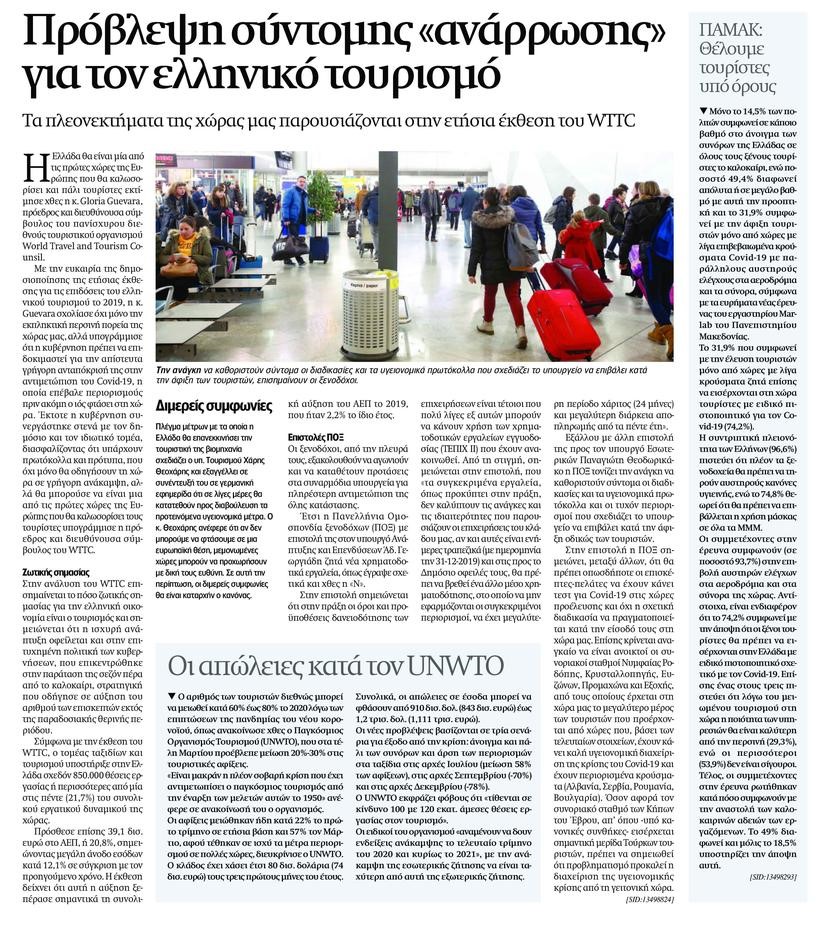
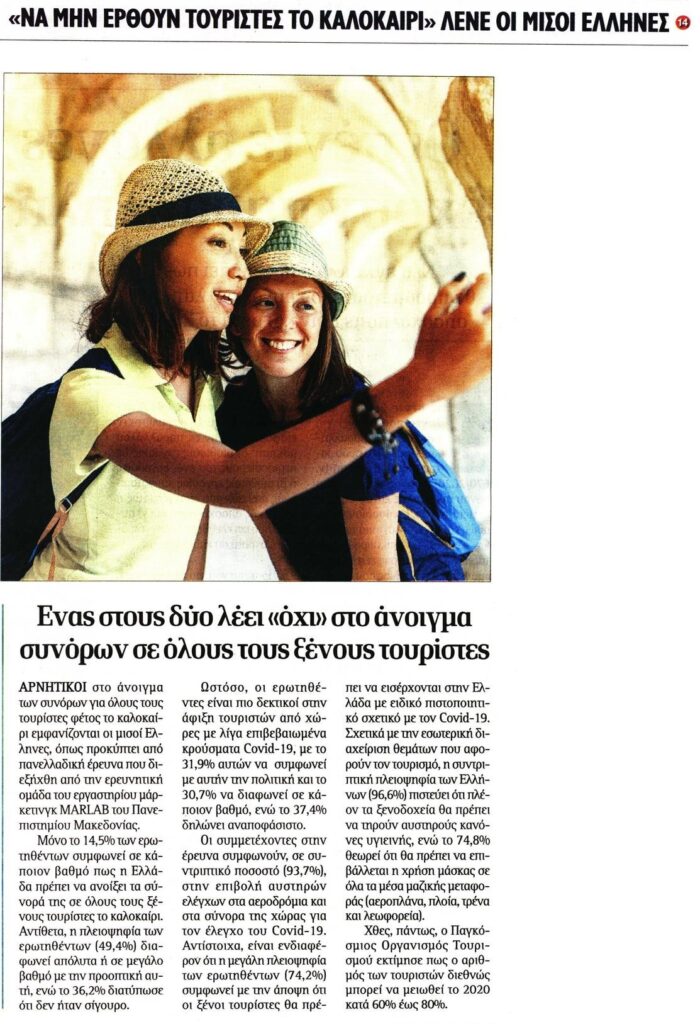
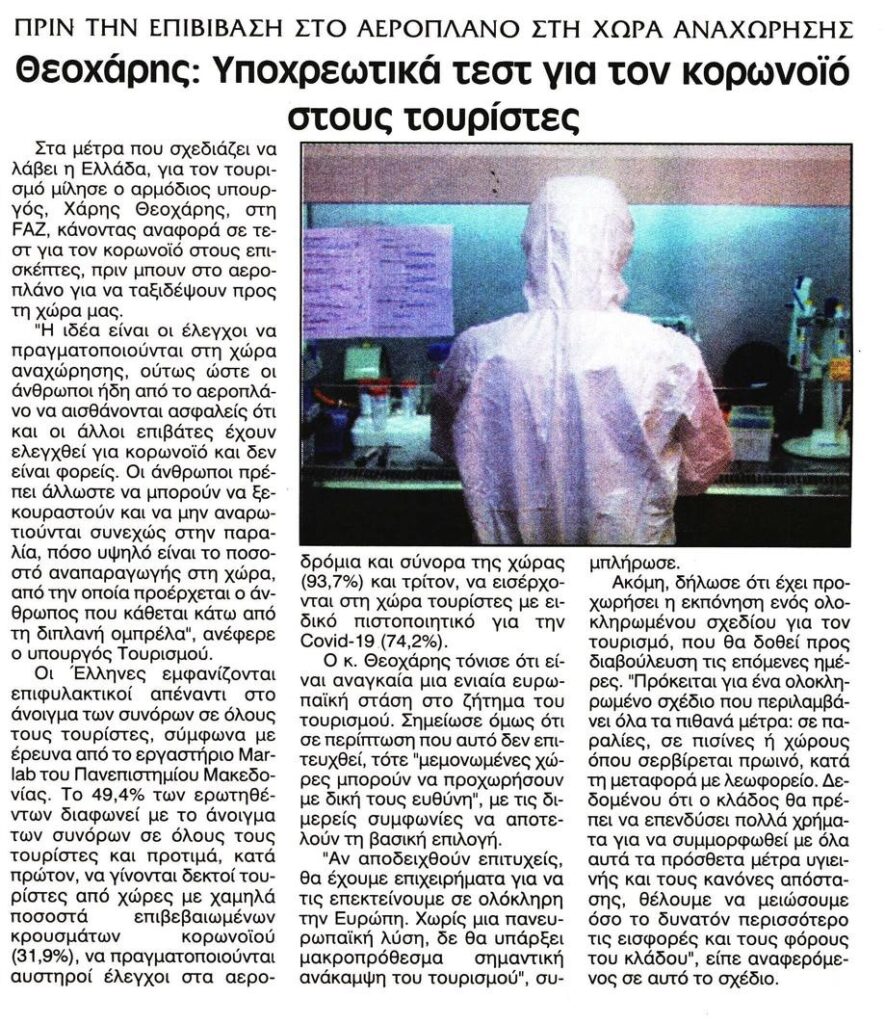
INDICATIVE PUBLICATIONS IN DIGITAL MEDIA
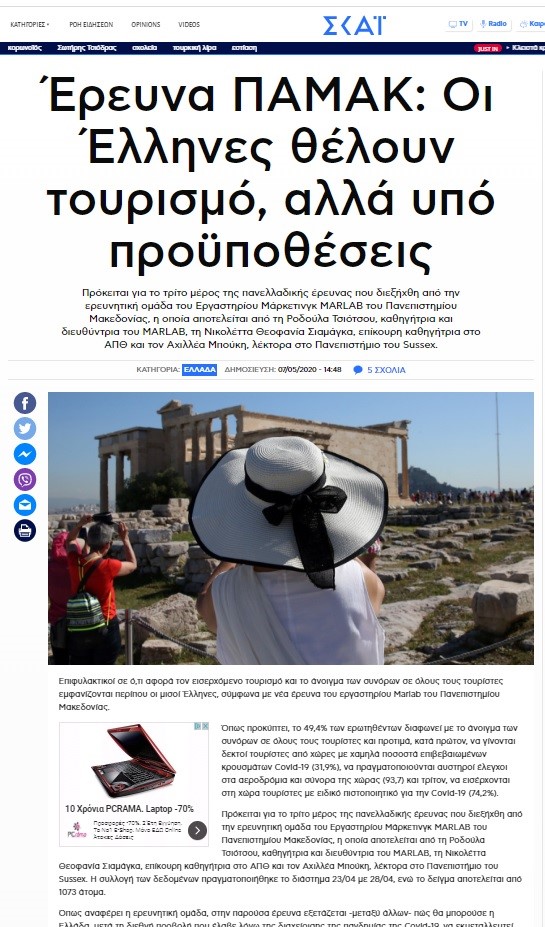
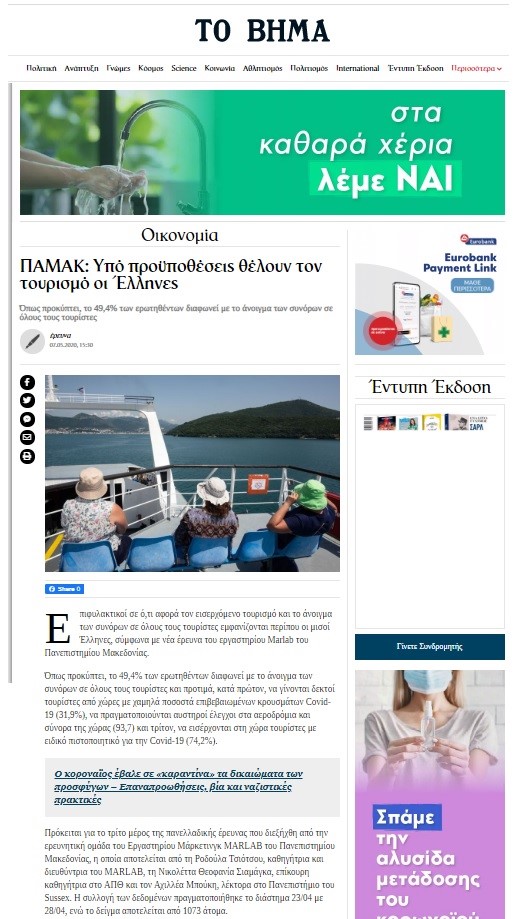
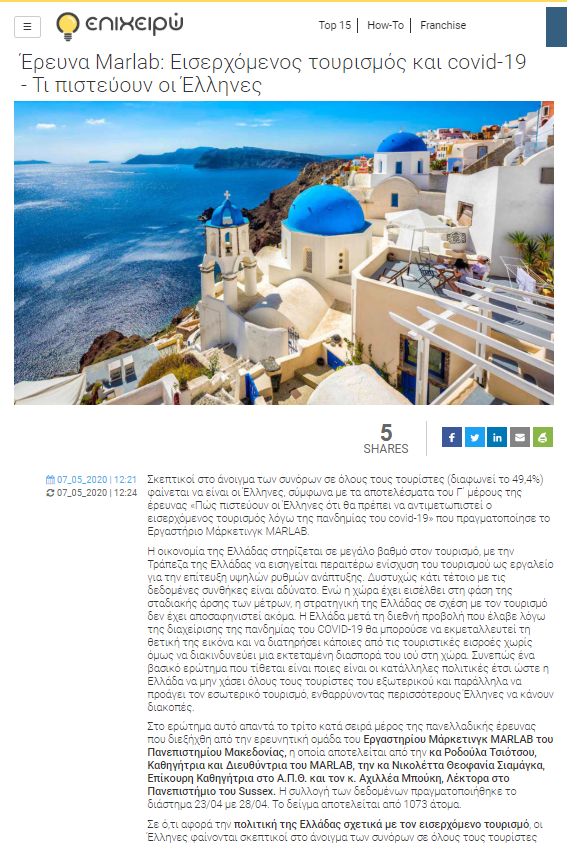
VIDEO OF INDICATIVE INTERVIEWS AND TV REPORTS (more videos are available on MARLAB’s YouTube channel)

